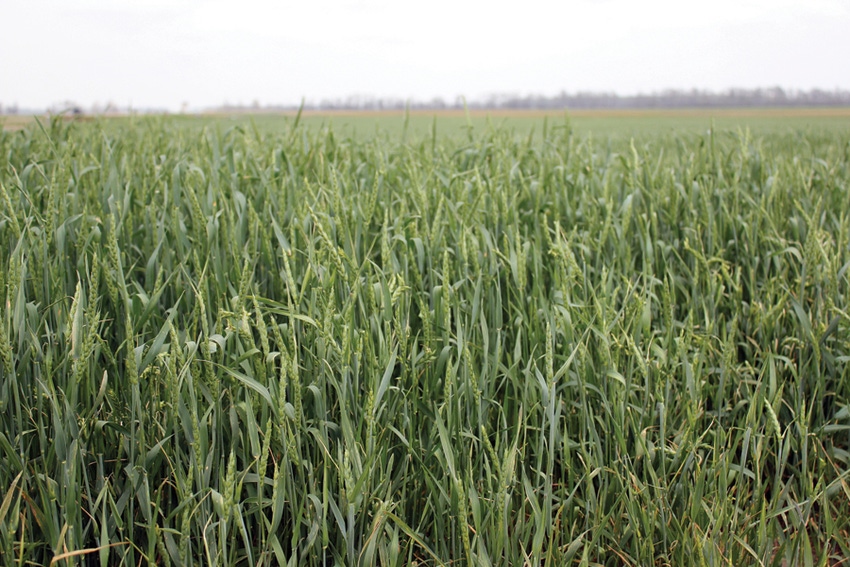April 20, 2011

Glyphosate drift on wheat seems to be the more widespread this year than any previous year. I have not walked in any fields — the descriptions by phone alone are enough to determine the problem.
I won’t get into trying to determine the sources of the drift. It is the job of the Arkansas State Plant Board to do that. I do know herbicide drift is causing a lot of ill feelings among neighbors and that is not good for agriculture. In most cases the source of the drift winds up being “source undetermined,” and the farmer is left holding the bag.
Unfortunately, I really do not see anyone, other than the farmers that have been hit, overly concerned about it. I do not know what the answer is, but we have to do better.
I have heard some suggest the answer is simply not to plant wheat in Arkansas. There is something bad wrong with that picture.
This has has been a windy spring. Ronnie Helms and I have several trials scheduled for the purpose of helping companies get additional 24-C registrations for aerial application of Command tank mixtures. It has been too windy to even consider getting them done.
A lot of them have glyphosate treatments or Newpath treatments in them, and with conventional rice emerged now it will be difficult. They may have to be done this fall.
I encourage everyone to see your county agent and “flag the technology.” Get enough flags in your conventional rice fields so it is obvious to everyone what they are. We do not need all of our rice planted to Clearfield varieties. Therefore, we do not need the same thing happening with Newpath and Beyond drift on conventional rice that has happened with glyphosate drift on wheat.
Make the conventional fields obvious, communicate with neighbors and applicators, and do not spray Newpath and Beyond with conventional rice downwind.
The calls are starting to come in on rice weed control. Continue to think about mixing modes of action and staying ahead of the barnyardgrass. Residual herbicides and stacking residual herbicides are the keys to staying ahead. While spending money on grass you do not see is sometimes hard to do, if you are not careful you wind up spending far more on postemergence herbicides and not killing the grass.
More and more consultants are calling just wanting reassurance they are doing the right things early. A common comment is “I am determined not to let the grass get ahead of me this year.” Those calls are encouraging and much easier to deal with than salvage calls!
I have had several calls on a new rice herbicide called League. It is a broadleaf residual herbicide from Valent that is available in very limited quantities this year. My understanding is they are just trying to get enough out on a trial use basis to see how it is going to perform in the field.
It is an ALS inhibitor that has been “on again-off again” in development for several years. It is labeled for broadleaf and sedge weeds as a pre-emergence herbicide or as a pre-emergence followed by early postemergence sequential treatment. This year for sure it has only a ground application label because it is tough on soybeans.
I have not seen the herbicide in the field and have not noted a lot of excitement among university researchers discussing the herbicide. However, a trial use program like the one in place this year would seem like a logical approach.
Besides herbicide-resistant barnyardgrass calls, some of my most difficult calls are on broadleaf weeds. A herbicide that has a long enough residual period to control a weed like Northern jointvetch (indigo), for example, would have a fit in Arkansas. If you could add League to the Command treatment or use the split application and stay away from a mid-season herbicide application, a lot of folks would like that. Hopefully, after this season, we will know if League will fit that bill.
About the Author(s)
You May Also Like




